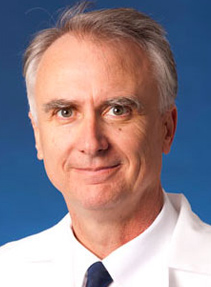Our Year: CollaborationExpanding Global Outreach
<< Previous Page Next Page >>

Dr. Wilson
A partner of the U.S. Centers for Disease Control and Prevention (CDC) since 2005, ASCP has participated through the President’s Emergency Plan for AIDS Relief (PEPFAR) to combat HIV/AIDS in sub-Saharan Africa. Now this multidisciplinary, collaborative approach developed with many organizations through PEPFAR is being used as a model for how to effectively fight other diseases in developing countries.
ASCP partnered with the American Society of Clinical Oncology (ASCO) and the Academic Model for the Provision of Access to Health Care (AMPATH) in a Multidisciplinary Cancer Management Course (MCMC) presented in Eldoret, Kenya, in February 2012. The meeting demonstrated that ASCP can become more of an international force, expanding well beyond its work for the U.S. Centers for Disease Control and Prevention through PEPFAR.
“The Society can provide so much of what is needed: the technical expertise for laboratories, laboratory management, and superior education,” said Michael L. Wilson, MD, FASCP, the ASCP representative at the MCMC, who was recently selected as the Editor-in-Chief of the American Journal of Clinical Pathology. Click here to read more.
____
ASCP can provide so much of what is needed: the technical expertise for laboratories, laboratory management, and superior education,Dr. Wilson said.
____
“ASCP has been and will continue to be successful due to the skills and commitment of our consultants,” Dr. Holladay said. “With more than 100,000 members, the Society has the capacity and expertise in pathology and laboratory medicine to direct our resources to many countries simultaneously. ASCP’s partnerships with organizations such as the CDC, WHO, and the African Society for Laboratory Medicine expand our reach and influence to improve patient care where it is needed the most.”
ASCP’s international efforts include spreading the laboratory management tool, “Strengthening Laboratory Management Toward Accreditation” (SLMTA), to developing countries that are part of PEPFAR; building laboratory infrastructure; and improving diagnostic tests that are essential to improving patient care.
<< Driving Momentum | Enhancing Knowledge >>
